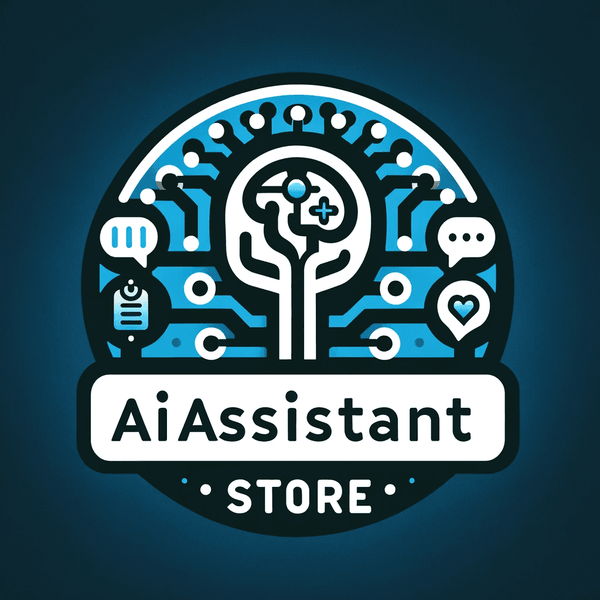AI Prompts for Teachers: Unlocking Classroom Magic with ChatGPT 🌟
Teaching ain’t quite what it was-remember when the biggest worry was chalk dust? Now it’s grading 150 essays, planning that epic lesson, and breaking up an impromptu paper-plane war. Teachers are, honestly, stretched thin. Yet AI isn’t here to steal your job; it’s more like that extra set of hands you never knew you needed. Here’s how some thoughtfully designed AI prompts can snag back your time, crank up engagement, and... sprinkle a little wonder into your day-to-day.
Articles you may like to read after this one:
🔗 Top 10 free AI tools for teachers
Discover essential AI tools to enhance teaching and boost productivity.
🔗 Best AI tools for teachers: Top 7
Explore top-rated AI tools to improve classroom engagement and efficiency.
🔗 AI tools for special education teachers
Learn how AI supports accessibility and personalized learning in special education.
What Makes AI Prompts for Teachers Actually Good?
At its heart, a prompt is the nudge-text you feed an AI so it knows what to whip up [2]. A truly stellar teacher prompt:
-
Is practical, right-off-the-bat usable in your classroom.
-
Ignites engagement-for students and that teaching spark you used to feel.
-
Strikes a balance: specific enough to get solid results, yet flexible so you can tweak on the fly.
-
Slashes prep time-practically instant support, because, let’s face it, every minute counts; seriously.
Think “Cook up a 15-minute simile scavenger hunt for 5th graders” instead of “How do I teach similes?”. Maybe it’s subtle, but it’s magic.
Comparison Table: Best AI Prompts for Teachers
| Prompt Idea | Best For | Free Tool To Use | Why It Works |
|---|---|---|---|
| "Design a warm-up for a tired Monday" | Morning classes | ChatGPT / Gemini | Saves mental energy; sparks smiles |
| "Make a 3-question exit quiz on photosynthesis" | Science wrap-ups | Poe / Copilot | Quick check-in-grading stress, gone |
| "Generate feedback for a 6th grade essay on pollution" | Grading overload | Claude / Notion AI | Detailed & human-sounding, fast |
| "Create 3 differentiated tasks on long division" | Diverse learners | ChatGPT / MagicSchool | Hits varied levels-easy win |
| "Explain the Civil War like I’m 10" | History units | Perplexity / ChatGPT | Makes dense topics, well, digestible |
Note: Free-plan limits vary - double-check before you dive in.
Time-Saving Prompts That Actually Work ⏱️
Admin stuff piles up - permission slips, slog-through articles, translations… and so on. AI can shoulder that load:
-
“Summarize this 5-page article into a 1-paragraph handout.”
-
“Give me a 10-question multiple-choice quiz on [topic] with answer key.”
-
“Draft a parent permission slip for our aquarium field trip.”
-
“Translate this assignment into Spanish.”
Fun fact: In England’s lower-secondary, teachers spend about 32.7 hours weekly on non-teaching tasks-way above their 20.5 teaching hours [4]. A neat prompt can reclaim chunks of your week.
Prompts That Spark Student Engagement 🚀
Kids sniff out stale lessons in roughly 0.2 seconds, no joke. Keep ’em hooked with:
-
“Imagine a story prompt for 4th graders featuring a time-traveling pencil.”
-
“Build a game to teach irregular verbs to ESL learners.”
-
“What’s an age-appropriate debate question on screen time for middle school?”
-
“Write a Dr. Seuss-style poem about recycling.”
I once saw participation rocket from 60% to nearly 85% in my 5th-grade class - just by asking them to riff on a time-travel tale.
Differentiation Made Easy (Finally!)
Tailoring lessons for each learner can devour hours. AI lifts that burden:
-
“Produce 3 versions of this math problem: basic, intermediate, advanced.”
-
“Suggest scaffolded questions for a struggling reader on [text].”
-
“Design an enrichment activity for early finishers on volcanoes.”
Research shows differentiated instruction can have a large positive effect (Hedges’ g = 1.109, p < .01) over traditional methods [3]. AI makes DI happen in seconds.
Behavior, Emails & Other Unseen Teacher Tasks 📢
Not everything is lesson-adjacent. AI drafts:
-
“A kind but firm email to a parent about missing homework.”
-
“A behavior reflection sheet for a chatty student.”
-
“Positive reinforcement strategies for a hyperactive learner.”
Nearly half of teachers cite admin overload as a top stressor-smart prompts feel like inhaling a deep breath [5].
Real Talk: AI Prompt Pitfalls to Avoid
AI’s powerful, but it’s not perfect:
-
Verify accuracy-models can hallucinate or misinterpret [10].
-
Add your human touch-context and empathy are non-negotiable.
-
Avoid vague or overly long prompts; they fizzle out.
-
Watch for bias, especially in history or social topics.
Trust, but always verify - because, I mean, why not?
Templates to Copy-Paste Today ✍️
Here are shells you can literally copy-paste in your next planning block:
-
“Create a [duration]-minute lesson plan on [topic] for [grade level].”
-
“List 5 fun ways to introduce [concept].”
-
“Generate student-friendly definitions for [vocab words].”
-
“Give me three warm-up questions on [topic], increasing in difficulty.”
-
“Design a discussion question tying [novel] to real-world issues.”
Swap in your specifics-and voila, instant classroom magic.
AI + Teachers = Match Made in Chalkboard Heaven 🎓
No one signed up for endless paperwork. AI won’t solve every systemic hurdle, but well-crafted AI prompts for teachers are a small hack with outsized returns-time reclaimed, stress tamed, learning amplified. Use AI as your co-brain, planner, admin aide… but maybe not your holiday card writer. Yet.

